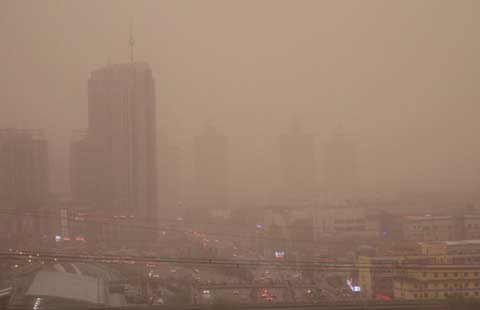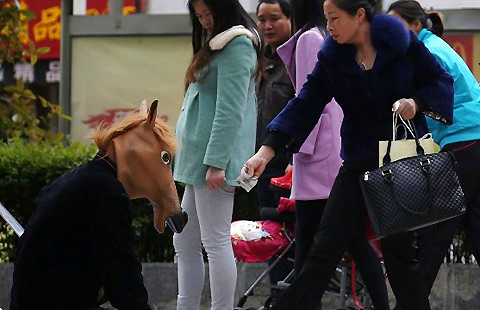Change to HK permits 'will affect business and family'
Updated: 2015-04-14 08:02
By Qiu Quanlin in Guangzhou(China Daily)
|
||||||||
A decision to restrict visits by residents of Shenzhen, Guangdong province, to Hong Kong will affect regular business and family trips, some Shenzhen residents have said.
Shenzhen residents applying for new annual entry permits to Hong Kong will be allowed to enter the special administrative region once a week with a maximum length of stay of seven days per visit, according to a circular released by the Ministry of Public Security on Monday.
Since April 2009, residents of Shenzhen with entry permits have been allowed unlimited visits to neighboring Hong Kong.
Liu Yun, an IT employee in Shenzhen, is concerned because her company has regular business trips to some Hong Kong companies.
"I don't know how the company will handle the business trips to Hong Kong in the future. In the past, I went to Hong Kong quite often for business," she said.
The revised regulation for new permit holders was made by the central government after huge numbers of tourists from the mainland put a strain on accommodations in Hong Kong, according to the circular.
During the past few months, there has been a series of protests against parallel trading in Hong Kong at some destinations popular with visitors from mainland.
Parallel traders from the mainland use multiple-entry permits to travel to Hong Kong, where they buy tax-free goods and take them back to resell at a profitable price. This has caused shortages of household goods in some parts of Hong Kong.
For other Shenzhen residents, whose family members live or study in Hong Kong, the limited visit permits will create problems.
Lu Xiaoyong, a 38-year-old Shenzhen resident, said his parents will find it difficult to help look after his 3-year-old child, who is going to attend school in Hong Kong in two years' time.
"The revised regulation sounds more like a similar policy to limit car purchases, which has already been implemented in some mainland cities," Lu said.
However, Shenzhen residents will be allowed to apply for multiple trips to Hong Kong within a year if they need to travel for regular business or family visits.
According to the Ministry of Public Security circular, Shenzhen residents have to apply for such permits by submitting relevant documents to the exit-entry authority for approval.
The once-a-week rule applies to new applicants, while permanent residents with existing multiple entry permits will not be affected until they come due for renewal.
The new rule was introduced as the campaign to stamp out illegal trading both in Hong Kong and Shenzhen ramps up, according to the Hong Kong government.
"It will take some time before the new policy's effect fully shows," Chief Executive Leung Chun-ying said, noting how the new policy will not affect existing permit holders.
Leung said local efforts to rein in parallel trading would be redoubled and raids on warehouses used in the trade networks would be intensified.
Timothy Chui in Hong Kong contributed to this story.
qiuquanlin@chinadaily.com.cn

 Top 10 industries with most job-hoppers
Top 10 industries with most job-hoppers
 Russia honors Chinese veterans from WWII
Russia honors Chinese veterans from WWII
 Woman embroiders giant painting
Woman embroiders giant painting
 HK singer-actress Mok takes fans on global journey
HK singer-actress Mok takes fans on global journey
 Sandstorm engulfs North China
Sandstorm engulfs North China
 Qinghai quake: Reliving the memory
Qinghai quake: Reliving the memory
 Father horses around to save his son
Father horses around to save his son
 Ten photos you don't wanna miss - April 15
Ten photos you don't wanna miss - April 15
Most Viewed
Editor's Picks

|

|

|

|

|

|
Today's Top News
Japan tops China as top holder of US debt
Q1 economic data: what the economists say
AIIB to operate in 'transparent way'
China-Canada Year kicks off
Paulson: US should have joined AIIB
Economic reforms in China are 'needed'
Li Na named Laureus exceptional award winner
Alibaba may face 'blacklist' trouble in US as fakes continue to abound
US Weekly

|

|






